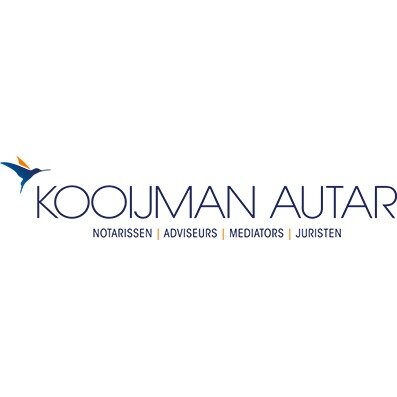Best ESG Advisory & Compliance Lawyers in Netherlands
Share your needs with us, get contacted by law firms.
Free. Takes 2 min.
Or refine your search by selecting a city:
List of the best lawyers in Netherlands
About ESG Advisory & Compliance Law in Netherlands
ESG stands for Environmental, Social, and Governance. ESG Advisory & Compliance law in the Netherlands focuses on how companies and organizations meet standards and requirements concerning sustainability, ethical management, and social responsibility. Dutch law increasingly emphasizes transparency, accountability, and integrating ESG factors into business operations. This area is quickly evolving due to new EU and national regulations which require businesses to assess, disclose, and manage their environmental impact, social practices, and governance structures. Both public and private companies may need to comply with these requirements, making legal guidance crucial for those operating in the Netherlands.
Why You May Need a Lawyer
Legal advice in ESG Advisory & Compliance is essential for several reasons. Companies operating in the Netherlands might need a lawyer when navigating complex regulatory requirements related to sustainability, employee rights, supply chain transparency, or anti-corruption policies. A lawyer ensures alignment with the EU Corporate Sustainability Reporting Directive (CSRD), the Sustainable Finance Disclosure Regulation (SFDR), and national Dutch laws. Legal help becomes vital when responding to government inquiries, conducting ESG due diligence during mergers or acquisitions, establishing compliance programs, or facing allegations of non-compliance. Lawyers also play a key role when companies want to create robust ESG strategies or engage in sustainable finance opportunities.
Local Laws Overview
Several laws and regulations in the Netherlands impact ESG Advisory & Compliance:
The Dutch implementation of EU regulations such as the CSRD and SFDR places duties on many companies to report on sustainability matters. The Dutch Civil Code also contains provisions around corporate governance and responsibility. There are national environmental laws controlling issues like emissions, waste, and resource management. Social requirements include adherence to labor laws, respect for human rights in operations and supply chains, and anti-discrimination obligations. Additionally, the Dutch Corporate Governance Code provides best practices and standards for companies regarding governance and transparency. Non-compliance can lead to administrative penalties, reputational harm, or even criminal prosecution in severe situations.
Frequently Asked Questions
What does ESG compliance mean for businesses in the Netherlands?
ESG compliance means meeting legal requirements and best practices regarding environmental responsibility, social impact, and governance structures. This includes mandatory disclosures, risk assessments, and adopting responsible business practices.
Which Dutch and EU laws regulate ESG matters?
Key regulations include the Corporate Sustainability Reporting Directive (CSRD), Sustainable Finance Disclosure Regulation (SFDR), Dutch Environmental Management Act, Dutch Occupational Health and Safety Act, as well as the Dutch Corporate Governance Code.
Are all companies in the Netherlands required to comply with ESG laws?
Most large and medium-sized companies must comply with certain ESG requirements. In some cases, smaller businesses or subsidiaries may also be affected, especially if they work within large supply chains or specific sectors.
What are the consequences of non-compliance with ESG regulations?
Non-compliance can result in administrative fines, legal proceedings, reputational damage, and restrictions on business activities. In severe circumstances, it can also affect access to financing or result in criminal sanctions.
How are ESG risks identified and managed?
ESG risks are identified through risk assessments, internal audits, and by monitoring operations and supply chains. Management includes setting policies, implementing procedures, training staff, and establishing reporting and whistleblowing channels.
What is ESG reporting and who must report?
ESG reporting involves disclosing information on a company’s environmental impact, social responsibility, and governance standards. Larger listed entities, financial institutions, and companies above certain size thresholds are commonly required to report.
How can a lawyer help with ESG compliance?
A lawyer advises on interpreting regulations, conducting ESG due diligence, drafting policies, training executives, managing risks, responding to investigations, and guiding on reporting obligations.
How often do ESG regulations change?
ESG regulations are evolving rapidly, especially due to new EU rules and global sustainability trends. Regular monitoring and updates are essential to maintain compliance.
Is ESG compliance voluntary or mandatory in the Netherlands?
Some ESG measures are voluntary but many are mandatory due to national and EU laws. Failing to meet mandatory requirements can have legal consequences.
Can ESG compliance benefit my business?
Yes, ESG compliance can enhance reputation, attract investors, open new business opportunities, improve operational efficiency, and reduce risks associated with non-compliance or social/environmental issues.
Additional Resources
- Netherlands Authority for the Financial Markets (AFM) - Regulatory guidance on sustainable finance and disclosure - Dutch Enterprise Agency (RVO) - Sustainability and corporate responsibility programs - Dutch Ministry of Infrastructure and Water Management - Environmental compliance and circular economy insights - Dutch Corporate Governance Code Monitoring Committee - Guidance and updates on governance standards - European Commission Directorate-General for Financial Stability, Financial Services and Capital Markets Union (DG FISMA) - EU regulations and policy updates - SER (Social and Economic Council of the Netherlands) - Guidelines and advice on responsible business conduct
Next Steps
If you need legal assistance with ESG Advisory & Compliance in the Netherlands, start by documenting your compliance efforts or concerns. Gather any relevant policies, reports, and communications. Identify your main areas of risk or uncertainty. Seek out a law firm or legal advisor with expertise in Dutch and EU ESG regulations for an initial consultation. Clearly outline your questions and objectives. Legal professionals can then guide you through compliance checks, reporting requirements, risk management, and handling government or stakeholder inquiries. Staying proactive and informed helps you avoid legal pitfalls while building a responsible and competitive business.
Lawzana helps you find the best lawyers and law firms in Netherlands through a curated and pre-screened list of qualified legal professionals. Our platform offers rankings and detailed profiles of attorneys and law firms, allowing you to compare based on practice areas, including ESG Advisory & Compliance, experience, and client feedback.
Each profile includes a description of the firm's areas of practice, client reviews, team members and partners, year of establishment, spoken languages, office locations, contact information, social media presence, and any published articles or resources. Most firms on our platform speak English and are experienced in both local and international legal matters.
Get a quote from top-rated law firms in Netherlands — quickly, securely, and without unnecessary hassle.
Disclaimer:
The information provided on this page is for general informational purposes only and does not constitute legal advice. While we strive to ensure the accuracy and relevance of the content, legal information may change over time, and interpretations of the law can vary. You should always consult with a qualified legal professional for advice specific to your situation.
We disclaim all liability for actions taken or not taken based on the content of this page. If you believe any information is incorrect or outdated, please contact us, and we will review and update it where appropriate.
Browse esg advisory & compliance law firms by city in Netherlands
Refine your search by selecting a city.
















